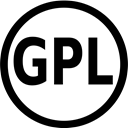Creative Commons Alternative: Exploring Top Licensing Options
Creative Commons licenses have become an industry standard for creators looking to share their work while retaining certain rights. These flexible licenses offer a spectrum of permissions, from allowing complete freedom to requiring attribution and prohibiting commercial use. However, for some projects or personal philosophies, a Creative Commons license might not be the perfect fit. Perhaps you need even greater freedom, or a license specifically tailored for software. Whatever your reason, exploring a Creative Commons alternative can open up new possibilities for your intellectual property.
Top Creative Commons Alternatives
If you're seeking different ways to license your creations, whether they be software, artistic works, or educational materials, there are excellent alternatives available that offer unique advantages.

GNU General Public License
The GNU General Public License (GNU GPL or GPL) is the most widely used free software license, known for guaranteeing end users significant freedoms to run, study, share, and modify the software. It's an excellent Creative Commons alternative for software projects where you want to ensure the code remains free and open source. The GNU GPL operates on a "copyleft" principle, meaning derivative works must also be distributed under the same license. It is available for Free and Web platforms and, as a license, does not feature specific functionalities beyond its legal framework.

WTFPL
The WTFPL (Do What The Fuck You Want To Public License) is an extremely permissive license, ideal for those seeking the ultimate freedom for their software, artistic, or scientific works. It stands in stark contrast to the more structured Creative Commons licenses, offering essentially no restrictions beyond what is legally permissible. If your goal is to release your work into the public domain as much as possible, the WTFPL is a viable Creative Commons alternative. It is available for Free and Web platforms and offers no specific features, embodying a philosophy of complete freedom.
Choosing the right license for your work is a critical decision. While Creative Commons offers a valuable framework, exploring alternatives like the GNU GPL for software or the WTFPL for maximum permissiveness can provide the perfect fit for your specific needs and philosophical stance on sharing intellectual property.